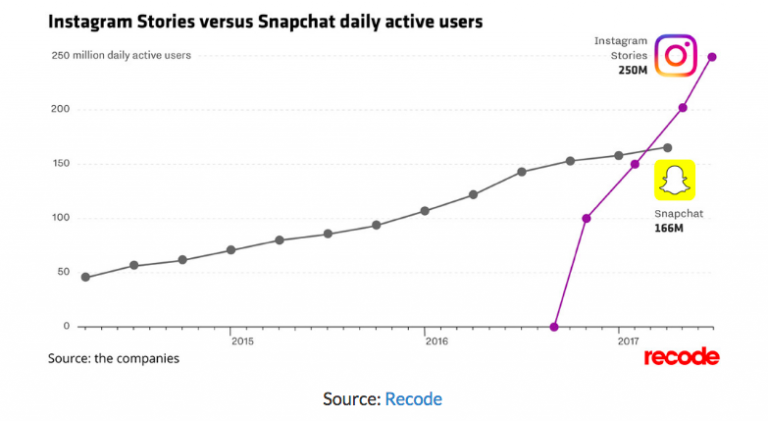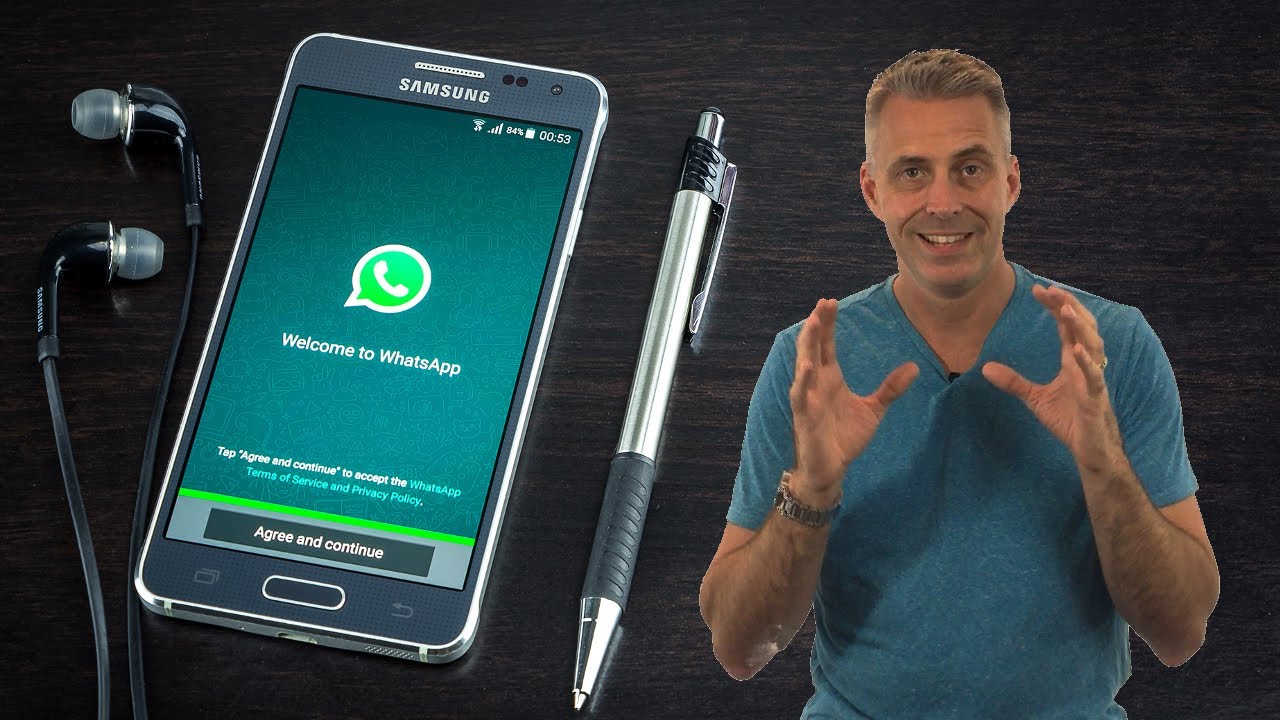The Story of Instagram and WhatsApp Founders Leaving their Facebook-acquired companies

Mark Krieger and Kevin Systrom/fastcompany.com
The Story of Instagram’s Acquisition
In 2010, co-founders Mark Krieger and Kevin Systrom had a great product – Instagram, where users can tell their stories through photographs.
One week following its launch, Instagram had 100.000 users and by December, 1 million users.
There’s no doubt – Instagram was the rising star of photo-focused apps. The powerful duo worked by having complimenting skills: Krieger loved working on the technology and engineering side while Systrom focused on product and design.
They knew the future of Instagram was bright so they came to the conclusion they needed help to grow faster. Facebook monitored Instagram’s meteoric rise closely with good reason – its position as the heavyweight of the social media landscape was coming under threat. When the occasion presented itself, Facebook didn’t miss it and moved to acquire Instagram in 2012 for $1 billion. Both parties were happy with this acquisition: on one hand Facebook’s almost endless resources and infrastructure provided the fuel for Instagram’s growth and on the other hand Facebook managed to eliminate a powerful competitor while gaining access to a large pool of young users.
“The whole idea of joining Facebook was that we could scale way more quickly than we would independently. So if that is your goal, I think we’ve fulfilled that, and then some. If your goal, on the other hand, is not to have a billion dollars but two, or three, or four or whatever, well, good luck spending it. That’s not what makes you happy in life.”
Kevin Systrom via cnbc.com
Both Krieger and Systrom anticipated that, by selling to Facebook, they could let Facebook handle the tedious organisational aspect of running a company, while they focused on the parts they loved most: building products.
The acquisition took Instagram to a whole new level. The number of employees grew from 13 to 550+. They launched new products and features and monetized the platform by running ads. Instagram soon generated close to $8 billion in ad revenue. The Stories feature launched and it quickly overtook Snapchat Stories, which served as inspiration.

In early 2018, Instagram announced it had finally hit a billion users worldwide.
At the time of the acquisition, Zuckerberg declared his commitment to running Instagram independently.
Recently, Krieger and Systrom became reportedly frustrated due to their creative independence being eroded. Although neither one of them went public on this subject, they may have felt Facebook was changing its story: instead of sustaining Instagram’s growth, the social media giant was apparently using the platform to slingshot itself.
Sources estimated Instagram was currently worth more than $100 billion and on track to provide Facebook with $20 billion in revenue by 2020. The decision of both co-founders to leave the Facebook-owned Instagram was not surprising to those looking beyond Mark Zuckerberg’s lofty words of “connecting the world”.
What does the future of Instagram look like?
Analysts are saying that Instagram’s bright star is growing colder – the platform is most likely to become “a product division of Facebook than an independent operation”.

Jan Koum and Brian Acton/forbes.com
The story of WhatsApp’s Acquisition
Jan Koum started WhatsApp in 2009 after he got annoyed that he was missing calls when he went to the gym. Later that year, he brought Brian Acton to the company. By 2013, WhatsApp had 200 million active users and a staff of 50. The company’s values are heavily influenced by Koum’s childhood life in communist Ukraine:
• Protection of users’ privacy through powerful encryption codes (the company doesn’t have any information on its users);
• It doesn’t read users’ messages;
• No adds-policy.
Because WhatsApp doesn’t store its users personal information, delivering adds to them is out of the equation. In our world, the world of giant tech companies (Google, Facebook) which store users’ personal data and sell it to advertisers, such company values seem quite odd and very out of place, while terribly correct.
In 2014, WhatsApp was acquired by Facebook for $22 billion.
When the Facebook acquisition of WhatsApp was announced, many questioned the company’s capacity to remain true to its values. Here is Jan’s statement on the WhatsApp blog:
“Respect for your privacy is coded into our DNA, and we built WhatsApp around the goal of knowing as little about you as possible: You don’t have to give us your name and we don’t ask for your email address. We don’t know your birthday. We don’t know your home address. We don’t know where you work. We don’t know your likes, what you search for on the internet or collect your GPS location. None of that data has ever been collected and stored by WhatsApp, and we really have no plans to change that.”
As with Instagram, Facebook promised WhatsApp autonomy and independent operation. Both Brian Acton and Jan Koum were assured that WhatsApp wouldn’t have to run ads or merge its data with Facebook’s earlier than 5 years. But apparently Facebook changed its mind.
In its interview with Forbes, Acton claims Facebook used him to get the acquisition past EU regulators by convincing them that a data merge between the two platforms would not take place. Two years later, Facebook managed to connect WhatsApp and Facebook user accounts, which lead to a $122Million fine from the EU.
In 2017, WhatsApp announced the introduction of new features to make it easier for people to communicate with businesses over the messaging platform: the WhatsApp Business App. Business looking to use the new app will pay to send certain messages.
Talking about Mark Zuckerberg and Sheryl Sandberg, Acton said:
“They are businesspeople, they are good businesspeople. They just represent a set of business practices, principles and ethics, and policies that I don’t necessarily agree with”.
Brian Acton via forbes.com
Brian Acton left in late 2017 due to disagreements over how to monetize their anti-ads messaging platform. Acton said he tried to push Facebook towards an alternative, less privacy hostile business model for WhatsApp. He suggested a metered-user model in which the user is charged a tenth of a penny after a certain large number of free messages were used up. Mark Zuckerberg and Sheryl Sandberg were dissatisfied with his proposal. Consequently, Brian chose to leave the Facebook-owned messaging platform, losing $850 billion. He later joined the #deleteFacebook movement. The same year, WhatsApp reached 1 billion users daily.
“Dealing with ads is depressing . . . You don’t make anyone’s life better by making advertisements work better.”
Jan Koum
In early 2018, a few months after Acton had left, Jan Koum followed suit and left WhatsApp over conflicts related to WhatsApp user data privacy and weakened encryption.
Media reported on Jan being angry with Facebook executives who pushed for a weakening of WhatsApp’s end-to-end encryption in order to facilitate its new WhatsApp For Business program. The next step in the foreseeable future is Facebook allowing businesses to upload lists of phone numbers to target people with ads.
Opinions in the media
Time says the Instagram founders leaving the platform is really bad news for Facebook, The Verge casts a gloomy conclusion saying this is the end of Instagram as we know it while The Guardian names Zuckerberg the Supreme Leader and suggests the co-founders’ have left because they must have realised that what they were trying to do within the Facebook empire was doomed to fail.
Conclusion
Some may say Facebook looks a lot like the witch in Hansel and Gretel who was luring the children lost in the woods with candy and chocolate to enter her house, kill them and eat them.
Maybe it’s good to remind the supporters of this opinion that the founders are not the children in Grimm’s tale.
The Disadvantages of Using WhatsApp for Business
Separating personal from business may prove to be sometimes more difficult than expected, especially when using certain social media apps and tools for both purposes.
Therefore, after detailing the advantages of using WhatsApp for business, we’ve decided to also show you the disadvantages that come with choosing to use it on a professional level.
Looking to turn disadvantages into opportunities? Join our masterclass!

-
- It does not provide enterprise data protection
WhatsApp accesses and stores the address books of employees, which contains confidential corporate and customer data. While the app has announced an improved encryption, it currently does not provide enterprise-grade encryption (e.g. metadata, storage on device, storage on servers, etc). In addition, free services like WhatsApp require user data to make a living. taking in account the fact that it has announced to generate revenues from businesses by allowing them to communicate to customers, it’s important to understand that such a business model requires knowledge of your users and is in conflict with minimal use of personal data, general data reduction and strong data protection.
“Hidden in the legal mumbo jumbo of “Terms of Service” of a consumer chat app are the following key issues. First, consumer applications cannot guarantee that conversations or files exchanged are confidential. Second, it is also necessary to stress that chats in applications like WhatsApp are not erased, they just become hidden and archived in the database of the app (including our status updates). Companies have secrets they want to keep, whether it’s because of regulatory issues, SEBI requirements, or patient confidentiality in the case of healthcare. Consumer chat applications are a ticking time bomb for business users,” writes Gadgets360.
Moreover, according to cwsi.ie, in 2015 WhatsApp was ranked last by the Electronic Frontier Foundation on the subject of users’ data privacy. Even more worryingly, the European Court of Justice ruled that U.S. based companies in the tech industry – specifically Facebook – do not afford an adequate level of protection of personal data for their European users. Considering that WhatsApp is owned by Facebook and the terms and conditions of WhatsApp’s usage wrangle users into agreeing to have certain data passed from WhatsApp to Facebook, then this is a double blow for user privacy.

2. WhatsApp is a cloud service based in the USA
Due to the weak data protection laws and the broad surveillance in the USA, cloud services based or hosted in the USA cannot ensure comprehensive data protection required by businesses and their employees and customers.
3. It mixes private and business communication
For enterprises it is important to separate business from private communication. First, a dedicated enterprise messaging app allows faster access and gives a better overview of everything that is relevant for the internal communication, and thus increases the productivity. Second, confidential business content is protected in enterprise messaging apps, because it can only be shared with colleagues and the content distribution is under control of the enterprise IT. Third, the motivation and satisfaction of employees are improved with a professional messaging tool, since people value a separation of private and business communication.
However, even while paying a lot of attention, switching from a personal account to a business one and vice-versa can sometimes prove to be creating problems.

4. It does not support enterprise file sharing solutions
Businesses often use enterprise-grade file sharing solutions like Microsoft Sharepoint, Box, Business Connector, etc, which are not supported by WhatsApp at all. “Since file sharing with colleagues and teams is a regular use case, employees should be able to directly share documents from their file sharing solution via the enterprise messaging app. This helps to simplify and accelerate workflows,” writes TeamWire.
5. Still having to manage the tasks
HiboxCo highlights the fact that just by messaging a group about new ideas doesn’t mean they’ll actually amount to anything. There have to be clear, concise tasks and deadlines in order to see projects through effectively. “Though a good place to openly discuss new ideas and innovative solutions, group chat alone doesn’t get you to the finished product. Without task management, WhatsApp doesn’t allow you to organize actionable to-dos needed to get the job done.”
6. Lack of transparency
What most of us seemed to have forgotten is the fact that the app was meant for casual conversation. Anyone can create groups and anyone can private message anyone. “If the organization within your business needs remain as transparent as possible to those at the top, this is not an ideal situation. If multiple groups and side groups are created, that can lead to a lack of knowledge and clarity, which in turn makes it difficult for managers to know what’s really going on,” adds The Hibox Team.
Using WhatsApp for business – the new important trend?
WhatsApp has become one of the most popular messaging apps in the world, with 1 billion daily users. Besides being a phenomenon in the people’s private lives, the app is taking control in the work side of the story, businessmen and women using it more and more in their everyday business activities.
A reality that is seen also by the app’s owners that are getting ready to start capitalizing more on its success. According to Tech Crunch, WhatsApp is gearing up to finally monetize its messaging app by charging large enterprise businesses for tools to better communicate with customers. WhatsApp will also offer a free app to small-to-medium sized businesses, though it hasn’t outlined the specific functionality of the app. The enterprise solution will allow global companies “to provide customers with useful notifications like flight times, delivery confirmations, and other updates”.
Moreover, recently, WhatsApp began testing verified accounts for businesses. “Conversations with businesses are encrypted and they can be blocked. Interestingly, if a business isn’t already in your phone number contacts, its name will appear as whatever they register themselves as instead of their number. This could allow WhatsApp to create a business search engine with optional sponsored results, or let businesses cold-message people, possibly for a fee,” wrote Josh Constine for Tech Crunch. More on the subject one can read here.
As the interest towards the app’s use for business is constantly growing, we are offering you some tips on how to maximize the app’s features on the professional life as well.
- Look at its importance in Customer Communication
According to ProfitBooks, following up on WhatsApp instead of direct calling on the phone calls will help you get a 40% higher response rate. “No one appreciates phone calls from unknown numbers, but we are more likely to respond to personal messages. When we start using WhatsApp for customer communication, we noticed better response and engagement. This also gives an opportunity to be little informal. For example, you have sent a quotation to your potential customer but haven’t heard from him, what do you do? You either call him or send a followup mail using formal language. Instead of doing this, if you just send a short message on WhatsApp asking about the status, you might get a quick response,”writes the website.
2. A great tool for Marketing, Promotion and Customer Support
WhatsApp could be a great tool for customer support simple because of its wider reach. Your customers would always prefer to send you a message over WhatsApp rather than calling a helpdesk number or talking to a robot.
Moreover, WhatsApp can prove to be a very strong marketing tool. It is a good one-to-one platform for direct communication, making it easy to send and receive any type of content (images, audio files, short video clips, etc), really fast, to users all over the world. Unlike SMS or Email, there are less restriction on the format and delivery chances are higher.
This doesn’t mean that you should spam your customers with WhatsApp messages. Ideally you should use WhatsApp to connect with existing loyal customers rather than trying to reach new users.
3. A place for using your creativity
Technology and digital are helping businesses become more creative, offering them the possibility to innovate and surprise their target on a regular basis. WhatsApp, like any fresh and hot app, makes sure it gives its users the chance to grow their business in a cost effective manner, all one has to do is be up to date with its technical features and try and see things from a different perspective. One can get inspired from here.
4. Great for Market Surveys
Whatsapp is a great interactive tool for getting real-time suggestions and feedback from your customers about your products and services, through brief and concise questions relating to the areas of your business or service you need information on.
5. Amazing for Internal Communications purposes
One of the greatest things about WhatApp is that is easy to use and understood by all types of target, almost everyone uses it. At the same time, as pointed out by vanguardngr.com, you don’t need to explicitly ask your employees or team members to check the app, because chances are they’re already hooked to it. “You can form WhatsApp group for different teams in your business, for example you can form a WhatsApp group for the Business Strategy team, another for the Sales and Development team etc. Your team can share ideas, instant messages, images, audio files, video clips and other media among themselves in a quick and fun way. You also don’t need to be too afraid of the information shared on the these groups getting out, because Whatsapp messages are protected with an end-to-end encryption that not only makes it one of the safest messaging apps in existence, but also adequately protects your data from leaks,” adds vanguardngr.com.
More pieces of information and ideas you can also read here.

